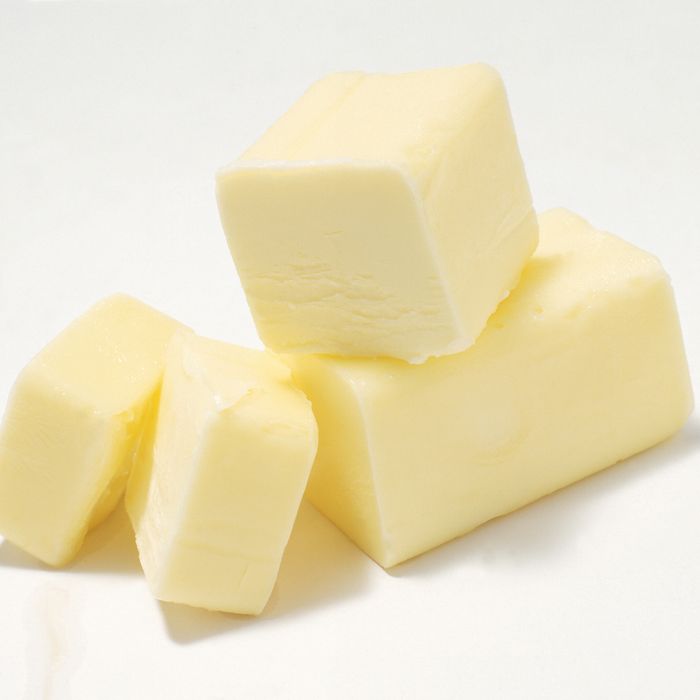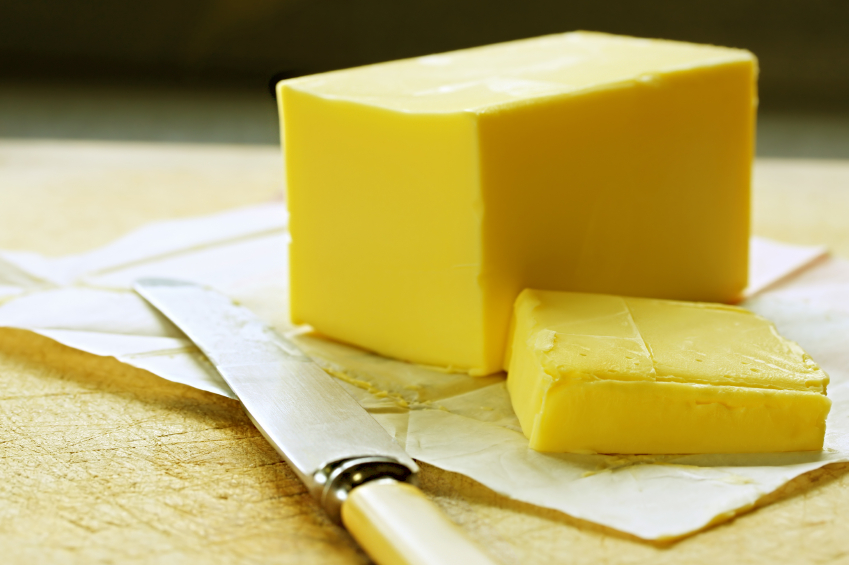Butter sugoi is a term that's been buzzing lately among food enthusiasts, and for good reason. Whether you're an avid baker, a cooking enthusiast, or just someone who loves a rich, creamy texture in their meals, butter is a star ingredient that truly deserves the spotlight. As people explore the nuances of butter types and their culinary applications, the phrase "butter sugoi" has emerged as a fun and playful way to celebrate this dairy delight. If you're curious about what makes butter so special and why it's often considered a kitchen essential, you're in the right place. Let's take a closer look at this rich and flavorful ingredient.
Butter sugoi captures the essence of what makes butter so versatile and beloved. It's more than just a spread for your morning toast; it's a key player in countless recipes, from flaky pastries to decadent sauces. The term "sugoi" is Japanese for "amazing" or "incredible," and when paired with butter, it emphasizes just how remarkable this dairy product truly is. So, if you're ready to dive deeper into the world of butter and discover why it's such a staple in kitchens worldwide, keep reading.
Butter sugoi isn't just about appreciating the flavor and texture of butter—it's also about understanding its variety. From unsalted to cultured butter, each type brings something unique to the table. Whether you're looking to enhance your baking skills or simply want to enjoy a better-tasting meal, learning about the different types of butter can make a big difference. In this article, we'll explore the basics of butter, its health benefits, and why it's considered such a culinary gem. Let's get started!
What Makes Butter So Sugoi?
Alright, so what exactly makes butter so incredible? Butter is essentially a dairy product made from the fat and protein components of churned cream. It’s composed of milk fat, water, and milk solids, which come together to create a rich and creamy texture that's hard to resist. When you churn milk or cream, typically from cows, the milk fat separates from the liquid portion, leaving behind this golden delight. This process gives butter its distinct flavor and makes it a favorite in kitchens all over the globe.
Is Butter Sugoi Really Worth the Hype?
So, is butter sugoi really all it's cracked up to be? The answer is yes, and here's why. Butter has a way of enhancing the taste of any dish it's added to. Whether you're whipping up biscuits, brown butter pasta, or cookies, butter takes these dishes to the next level. Its ability to bring out the best in flavors is what makes it so special. Plus, its vitamins and healthy fats offer some nutritional benefits when consumed in moderation. That's right, butter isn't just tasty—it's also good for you in small amounts!
Why Does Butter Taste So Sugoi?
Let's talk about why butter tastes so amazing. The flavor of butter comes from its milk fat, which is what gives it that rich and creamy profile. When you cook with butter, the fats begin to brown, releasing a nutty aroma that's absolutely irresistible. This is why dishes made with butter often have a depth of flavor that other ingredients simply can't match. It's not just about the taste, though; butter's texture is equally important. Its smooth and velvety consistency makes it perfect for spreading, melting, or baking.
What Makes Butter Sugoi Stand Out in the Kitchen?
Now, let's dive into what makes butter sugoi stand out in the kitchen. One of the reasons butter is so popular is its versatility. It can be used in a variety of ways, from sautéing vegetables to making sauces, and even as a topping for bread. Its ability to enhance the flavor of any dish is unparalleled. For instance, when you use butter in baking, it creates a tender crumb and a flaky texture that's hard to achieve with other fats. It's no wonder why so many chefs and home cooks alike consider butter an indispensable ingredient.
How Does Butter Sugoi Compare to Other Fats?
So, how does butter sugoi compare to other fats? Unlike oils or margarine, butter has a unique flavor profile that adds depth to any dish. While oils are great for high-heat cooking, butter brings a richness that can't be replicated. Margarine, on the other hand, is often processed and lacks the natural taste of butter. This is why butter remains a favorite among food lovers who appreciate its authentic flavor and creamy texture. It's simply unmatched in terms of taste and quality.
What Are the Benefits of Butter Sugoi?
Alright, so what are the benefits of butter sugoi? First and foremost, butter contains vitamins and healthy fats that can be beneficial when consumed in moderation. These nutrients contribute to overall health and well-being. Additionally, butter is a great source of energy due to its high fat content, making it a satisfying addition to meals. Of course, it's important to enjoy butter in reasonable portions to avoid overindulging, but when used wisely, it can be a nutritious part of your diet.
Can Butter Sugoi Improve Your Cooking?
Now, let's explore whether butter sugoi can improve your cooking. The truth is, butter has the power to elevate any dish it's added to. Whether you're sautéing vegetables, making a sauce, or baking a cake, butter brings a richness and depth that other ingredients simply can't match. Its ability to enhance flavors and textures is what makes it such a valuable ingredient in the kitchen. So, if you're looking to take your cooking to the next level, incorporating butter into your recipes is definitely worth considering.
How Can You Choose the Right Butter Sugoi for Your Recipes?
Choosing the right butter sugoi for your recipes can make all the difference. There are several types of butter to choose from, including unsalted, salted, cultured, and clarified. Each type has its own unique characteristics that make it suitable for different culinary applications. For instance, unsalted butter is often preferred for baking because it allows you to control the amount of salt in your recipes. Cultured butter, on the other hand, has a tangy flavor that's perfect for spreading on bread. Understanding the differences between these types can help you select the best butter for your needs.
What Are Some Popular Butter Sugoi Types?
Let's take a look at some popular butter sugoi types. Unsalted butter is a favorite among bakers because it allows for precise control over the salt content in recipes. Salted butter, on the other hand, is great for spreading on bread or using in savory dishes where you want a bit of extra flavor. Cultured butter has a tangy taste that's perfect for adding a unique twist to your meals. Clarified butter, also known as ghee, is ideal for high-heat cooking because it has a higher smoke point than regular butter. Each type of butter has its own set of benefits, making it easy to find the perfect match for your culinary creations.
Where Can You Find the Best Butter Sugoi?
Finally, where can you find the best butter sugoi? Your local grocery store likely carries a variety of butter options, but if you're looking for something special, consider checking out specialty food stores or farmers' markets. These places often offer high-quality butter made from local or organic sources, which can make a big difference in taste and quality. Additionally, some online retailers specialize in gourmet butter, so you might be able to find unique varieties that aren't available in your area. No matter where you shop, make sure to choose butter that fits your taste preferences and cooking needs.
Summary
In summary, butter sugoi is a term that celebrates the incredible qualities of butter. From its rich flavor and creamy texture to its versatility in the kitchen, butter is a true culinary gem. Whether you're a seasoned chef or a home cook just starting out, understanding the different types of butter and their applications can help you make the most of this beloved ingredient. So, the next time you're in the kitchen, don't forget to reach for some butter sugoi to add a little magic to your meals.
- Table of Contents
- What Makes Butter So Sugoi?
- Is Butter Sugoi Really Worth the Hype?
- Why Does Butter Taste So Sugoi?
- What Makes Butter Sugoi Stand Out in the Kitchen?
- How Does Butter Sugoi Compare to Other Fats?
- What Are the Benefits of Butter Sugoi?
- Can Butter Sugoi Improve Your Cooking?
- How Can You Choose the Right Butter Sugoi for Your Recipes?



